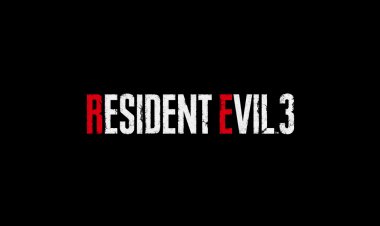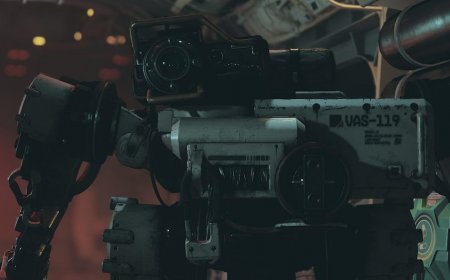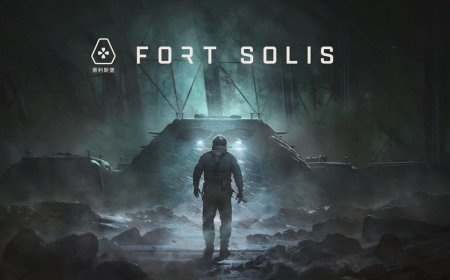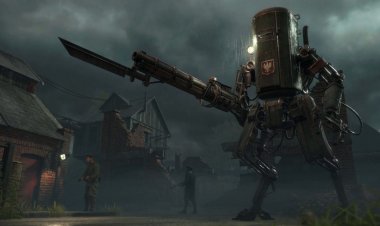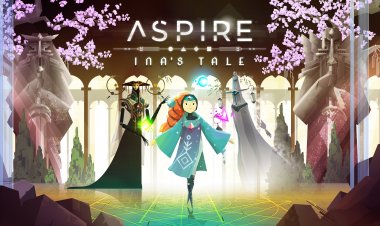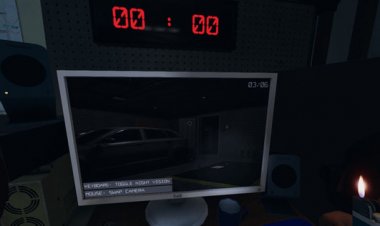Chorus Review
Creating a cool space game and making it successful is not an easy task. After all, for the general public, this genre is still a dark horse: Chorus Review.

How can you take seriously a game where most of the time a tiny ship is spinning in all directions? Moreover, it is not easy to believe that space postrelushki can be accompanied by any fascinating plot. Yes, in the past, Freelancer, widely known in narrow circles, was released, but it was a long time ago — now the cosmosim market is in a comatose state. Only Star Citizen (from Chris Roberts, who is responsible for the same Freelancer) is faintly glimmering on the horizon, which is still unknown how long to wait.
Deep Silver Fishlabs tried to occupy an empty niche: its mobile Galaxy on Fire was very warmly received by the audience, and now the developers have decided to repeat the success on PCs and consoles. To be safe, they even borrowed the minimum program of most popular games of recent years. A severe shaved girl in the main role, a dramatic search for her place in the world and elements of the sandbox - where without them. With such a starter kit, it seemed that the game would come out as faded and passable as possible, but in the end Chorus pleasantly surprised. You can't hide the talent of the authors even under a pile of cliches.

Pilot Jane
In the distant future, humanity has mastered an impressive part of the galaxy and settled in different star systems, but the space civilization has problems of corresponding cosmic scales. Out of nowhere, a certain Cult appeared, led by a mysterious Prophet. The elder promises world peace, the cessation of conflicts and the complete unification of mankind, but the slogan "equality and brotherhood" turned out to have an ominous connotation: to advance his mission, the Prophet did not hesitate to turn to the forces of the Abyss. Now in the galaxy, along with the cultists, some devilry is also rampaging, easily subjugating innocent people.
A war for a bright future with billions of victims began in the universe, and the main character - Nara - directly participated in it. Before the events of the game, she was one of the most talented pilots in the service of the Cult: the chosen one of the Prophet, who destroyed entire planets at the behest of the party. However, at some point her conscience and critical thinking still woke up, and realizing that she had become a monster, Nara fled to the Resistance to fight the sectarians under their banner.
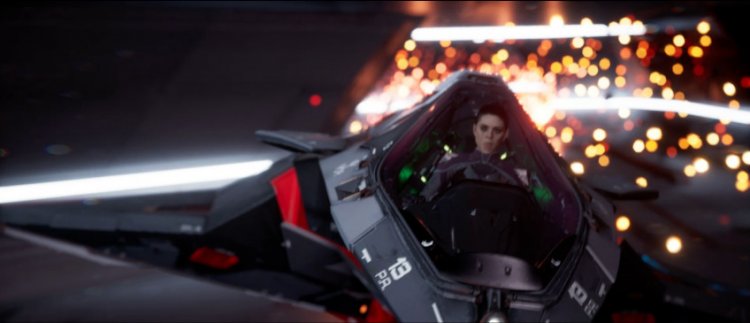
Unlike the recent Marvel's Guardian of the Galaxy, where a similar plot about space sectarians is combined with a fervent narrative full of gouging and branded gags, Chorus is an extremely serious epic action movie. Nara, being the former executioner of the Prophet, is not at all inclined to laugh and joke. She is the most severe, strong heroine, constantly reflecting on any occasion. And although such a description of the character does not sound too attractive, in fact, the character of Nara turned out to be unexpectedly worked out. Instead of copying the behavior of the archetypal male protagonist and forcing the surrounding extras to look admiringly into the heroine's mouth for no reason, the screenwriters convincingly portrayed a living, lost person.
The development of Nara's character takes place gradually: nothing primitive in the spirit of "now I've realized everything and I'm beating the bad ones on the right side of the Force" can be expected. On the contrary, the heroine doubts to the last whether there will be a place for her in the new world, evaluates the life and defense of the rebels through the eyes of a former cultist, says one thing to the underground in person, and she cynically thinks another. In general, it demonstrates some kind of inner world. In addition, the screenwriters clearly show how the protagonist is growing above herself. Yes, sometimes everything looks too pathetic, but looking at how a cornered girl collects her "I" in parts, willy-nilly you get respect for the pilot and begin to perceive her as a real heroine. Deservedly, and not because the characters of the second plan talk about it hypnotically the whole game.


The stars will definitely be ours
The gameplay is also revealed far from immediately and at first can cause an acute attack of deja vu - the times of flying arcades of the era of 16-bit consoles seem to have gone nowhere. Ship control is rather inconvenient, battles at high speeds are chaotic… But no, it's worth a little patience, as the game begins to delight with relatively fresh mechanics: moving through the story campaign, Nara discovers "rituals" - active skills like stunning the enemy, ramming, etc. When the heroine gets access to teleportation, Chorus ceases to be the joy of a masochist and turns into quite a comfortable action: teleporting behind the enemy's back saves time and significantly spurs the pace of battles. Does it sound like a legal cheat? Well, to hell with it. This convention serves the same purpose as shooter first aid kits that instantly heal bullet wounds.: it makes the game less realistic, but allows you to have more fun and fewer broken keyboards.
The system of pumping weapons and armor can not be called particularly deep. You can only improve standard characteristics like damage, health, energy and speed, but almost all upgrades are really useful and give significant advantages. Moreover, the competent assembly of the ship involves additional rewards: by putting several upgrades from one set, you can get a significant increase in back damage, increased damage from abilities or a volley of shrapnel to rocket launcher shots.
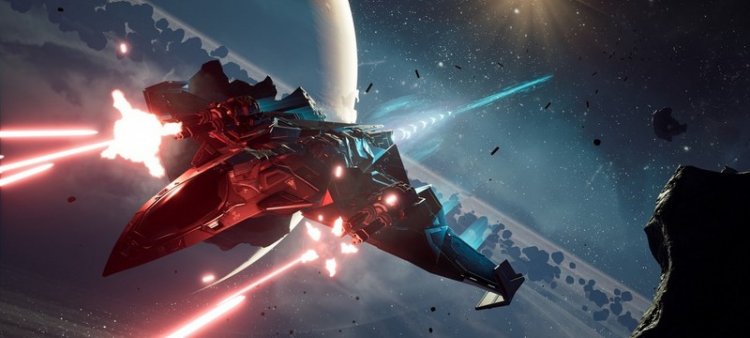
The system of pumping rituals and passive skills stands apart. Only the abilities that we use improve here, but for this we need to constantly pass mini-tests. For example, shoot down 50 armored opponents with missiles, disable 100 shields with a laser, destroy the enemy immediately after teleporting behind his back… It makes sense to perform challenges — they slightly complicate the battles, but they bring no less benefit than buying a new weapon. The upgrade system is simple, but tasteful, and therefore leaves an extremely positive impression.
After a couple of hours of play, the new chips make it much easier to control the ship, and it becomes incredibly maneuverable. Battles acquire dynamics, lasers sparkle everywhere, the speed seems to actually lay your ears — you are so immersed in the process. At such moments, it is difficult to get rid of the sad thought that a wide audience can easily bypass all this beauty. Chorus was released without fanfare, there was a minimum of advertising, and space arcade is not the most popular genre. There would have been no autumn apocalypse and December lull, personally I would certainly have passed by. But there is a silver lining. Who knows, one or two more of the same disastrous period in terms of releases, and really worthy teams such as Deep Silver Fishlabs will break into the top league.
Kicked out into dead space
However, the developers have already managed to pick up bad things from the trendsetters of gaming fashion. So far, just a little bit, but nevertheless. For example, getting all the desired upgrades in Chorus is not so easy. Of course, the most powerful improvements are not available immediately, but appear in stores only as the campaign progresses - this goes without saying. But the catch is that the authors decided to encourage the passage of story missions at a very minimum — there are constantly not enough funds for new things. And where would you think the game offers to go for the missing finances? No, fortunately, not to the in-game store, but to perform "fascinating" side effects: Chorus has not done without the open world with all its traditional problems.
Did you want to get hold of loans to make the ship cooler? Welcome to the high Road — rob… Excuse me, protect the caravans, bring-serve and enjoy the unearthly views of the same space debris. It is sad to realize that in most studios the dogma "high-quality game = open world" has become obsessively entrenched. Moreover, on the example of such a small game as Chorus, the absurdity of such an approach is clearly visible. There is emptiness and flying stones all around; there is practically no life, no movement even in large star harbors with busy highways. The developers seem to suggest exploring the world around them, but what can be "explored" in locations more similar to the backdrops from Dead Space is completely unclear.
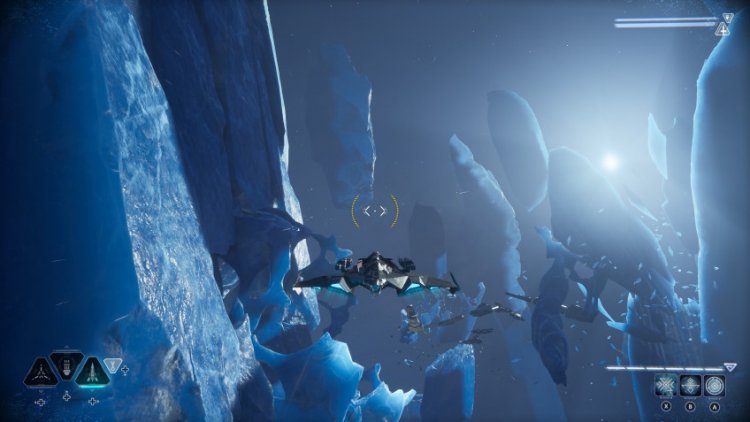
On the other hand, with side quests in Chorus, not everything is so bad, there are quite interesting ones among them. For example, in one we will be given control of a heavy cruiser that looks like an armed fortress; in the other there is a relatively good plot about experimental weapons that should not fall into anyone's irresponsible hands (except ours, of course). But such elaborate missions would look good in a story campaign. And within the framework of the open world, for every more or less tolerable activity, there are a dozen mournfully routine ones. Too vital. Too much.
But the worst thing is that the timing is delayed not by intrusive side effects, but by boss battles. They are completely arcade here: staged battles take place according to a certain scenario with a health scale, stages and changing tactics. The scenarios themselves are great, and they cause no less, or even more, drive than ordinary shootouts… The first five or ten minutes. That's just that each such fight drags on for about half an hour, if without deaths and restarts: to defeat the enemy, you need to attack small vulnerable areas that he diligently hides. The action takes place at high speeds, so it's very difficult to hit targets while the view is blocked by a million special effects. However, there are very few such moments in Chorus, and in general, the moderate complexity of battles does not allow you to break the gamepad on the monitor.
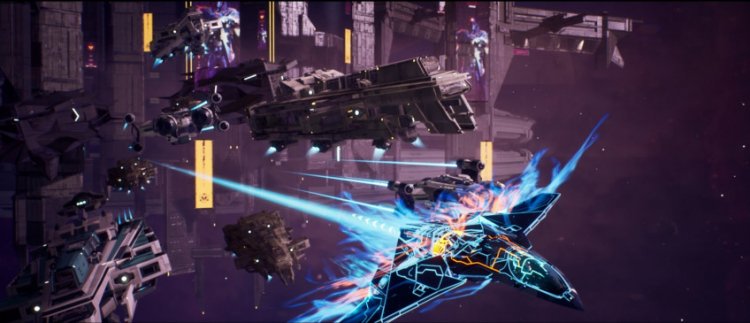
But all the shortcomings on the general background look insignificant. Chorus is a wonderful, well-built game for a couple of evenings, which is able to distract from the AAA failures of this fall. I was worried that it would turn out to be a product exclusively for fans of cosmosims, but in fact, bright battles, colorful explosions, lasers and asteroid belts can captivate anyone.
Result
Chorus does not pretend to be a new word in the genre, it is not a shame to advise a computer game even to those who are far from space simulators. Moreover, in addition to a good action, she will tell quite a good story.
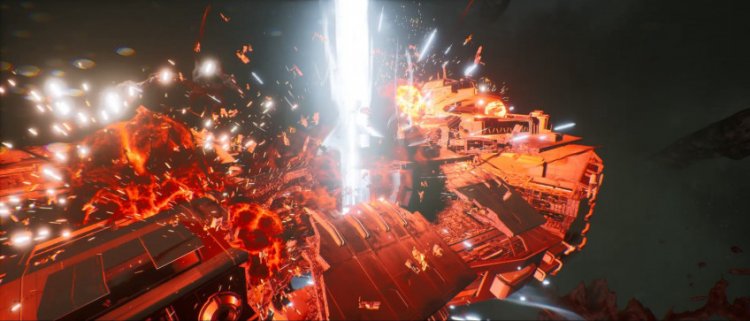

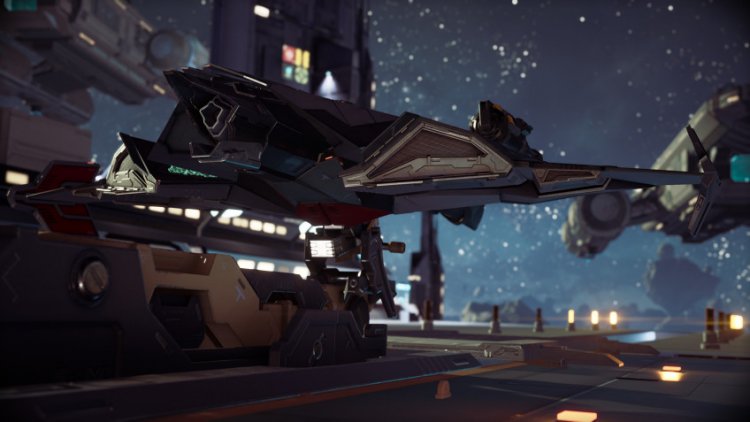
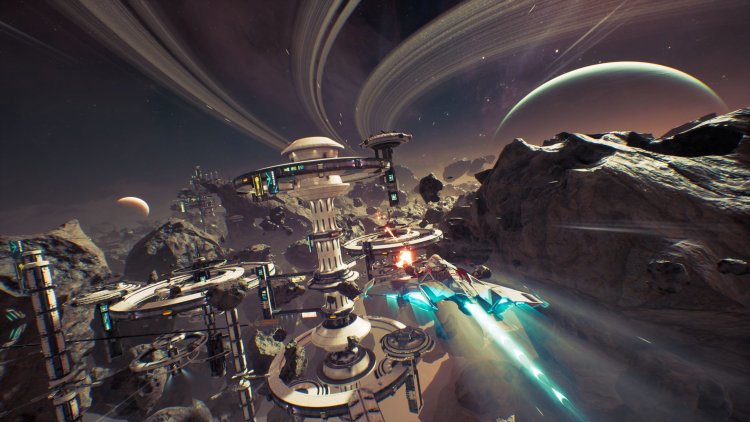
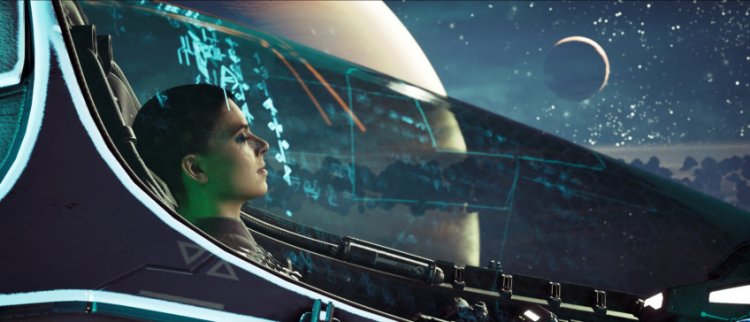
What's Your Reaction?
























































